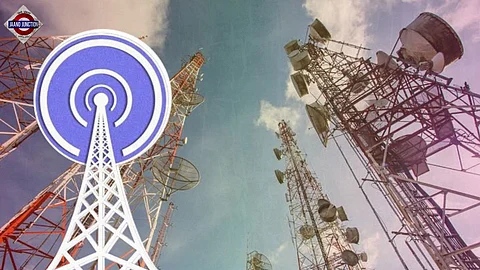

The Lok Sabha on Wednesday, 20 December, passed a Bill threatening end-to-end encryption in the absence of over two-thirds of the Opposition.
A total of 144 Opposition MPs have been suspended from both Houses during the Winter Session of Parliament.
As a result, the contentious Telecommunications Bill, 2023, saw a total of 63 minutes of debate. The discussion to overhaul the legislative framework governing telcommunication in India began at 4:57 pm and was finished by 6 pm.
The pivotal legislation would allow authorities to intercept or block messages between any persons relating to any particular subject in the event of a public emergency or in the interest of public safety. It was tabled by the Union Minister for Communication Ashwini Vaishnaw on Monday, 18 December.
However, according to the government, the Telecom Bill is meant to revamp the existing legislative framework that governs the telecom sector. It attempts to do this by repealing and replacing three "outdated" Acts, namely: the Indian Telegraph Act, 1885; the Indian Wireless Telegraphy Act, 1933; and The Telegraph Wire (Unlawful Possession) Act, 1950. It also proposes to make amendments to the Telecom Regulatory Authority of India Act, 1997.
So, what is in the proposed telecom legislation? How much has it changed from the draft released last year? And why has it led to concerns among Opposition MPs and activists?
Here's a complete breakdown of all the important clauses in the Telecommunications Bill, 2023.
What Are the Key Definitions in the Bill?
Critical telecommunication infrastructure: The central government is empowered to notify any telecom network as a 'critical telecommunication network' if the disruption of that network "shall have debilitating impact on national security, economy, public health or safety." The government is then further empowered to decide "the standards, security practices, upgradation requirements and procedures to be implemented for such Critical Telecommunication Infrastructure."
Authorisation: It means permission granted by the government to provide telecommunication services and to establish, operate, maintain, or expand telecom networks, according to the Bill. This authorisation is granted to "authorised entities" who intend to provide telecom services and to establish, operate, maintain or expand telecom networks.
The earlier version of the Bill had proposed a licensing regime by defining a 'license' as license, approval, authorisation, or permission granted to an entity engaged in providing telecommunication services, telecommunication network or telecommunication infrastructure.
Telecommunication identifier: This is a new term that has been defined in the 2023 version of the Bill. It means a series or combination of digits, characters, and symbols used to uniquely identify:
A
Telecommunication service has been defined as any service for telecommunication.
The 2022 version of the Bill had extended the definition of telecommunication service to specifically include Over-the-Top (OTT) communication services such as WhatsApp, Signal, Gmail, etc, thereby subjecting them to licensing requirements.
Introducing telecom-like regulation for OTT platforms has been a long-standing demand of Indian telcos while OTT players have pushed back against such legislation.
Telecommunication: According to the Bill, telecommunication means transmission, emission or reception of any messages, by wire, radio, optical or other electro-magnetic systems, whether or not such messages have been subjected to rearrangement, computation or other processes by any means in the course of their transmission, emission or reception.
Furthermore, a 'message' is defined as any sign, signal, writing, text, image, sound, video, data stream, intelligence or information sent through telecommunication.
Digital Bharat Nidhi: Speaking of revised terminology, the Bill proposes to rename the Universal Service Obligation Fund (USOF) to the Digital Bharat Nidhi. Furthermore, it seeks to expand the usage of the fund to support research and development of telecom technology, telecom pilot projects, rollout of telecom products, and aid in providing access to rural, remote, and urban areas.
Under the existing legislative framework, the USOF could reportedly only be used for expenditures to enhance rural connectivity.
Who All Is Required To Obtain Govt Authorisation?
This means that all of these entities would need to obtain authorisation from the central government if they want to make their services available to Indian users.
For those players who already hold a license under the existing laws, the proposed Bill states that the license will continue to be valid until its expiry date.
